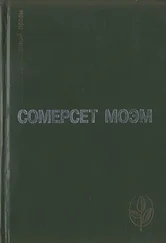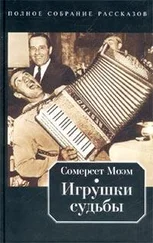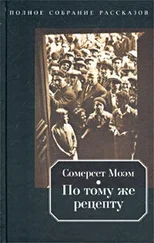Уильям Моэм - Orientations
Здесь есть возможность читать онлайн «Уильям Моэм - Orientations» весь текст электронной книги совершенно бесплатно (целиком полную версию без сокращений). В некоторых случаях можно слушать аудио, скачать через торрент в формате fb2 и присутствует краткое содержание. Год выпуска: 2014, Издательство: epubBooks Classics, Жанр: Классическая проза, на английском языке. Описание произведения, (предисловие) а так же отзывы посетителей доступны на портале библиотеки ЛибКат.
- Название:Orientations
- Автор:
- Издательство:epubBooks Classics
- Жанр:
- Год:2014
- ISBN:нет данных
- Рейтинг книги:5 / 5. Голосов: 1
-
Избранное:Добавить в избранное
- Отзывы:
-
Ваша оценка:
- 100
- 1
- 2
- 3
- 4
- 5
Orientations: краткое содержание, описание и аннотация
Предлагаем к чтению аннотацию, описание, краткое содержание или предисловие (зависит от того, что написал сам автор книги «Orientations»). Если вы не нашли необходимую информацию о книге — напишите в комментариях, мы постараемся отыскать её.
Orientations — читать онлайн бесплатно полную книгу (весь текст) целиком
Ниже представлен текст книги, разбитый по страницам. Система сохранения места последней прочитанной страницы, позволяет с удобством читать онлайн бесплатно книгу «Orientations», без необходимости каждый раз заново искать на чём Вы остановились. Поставьте закладку, и сможете в любой момент перейти на страницу, на которой закончили чтение.
Интервал:
Закладка:
'The fee is one franc.'
As I gave it him he put it in his pocket and gravely handed me a little printed receipt. Baedeker had obligingly informed me that the Duchy of Losas was shorn of its splendour, but I had not understood that the present representative added to his income by exhibiting the bones of his ancestors at a franc a head….
We entered, and the duke pointed out the groining of the roof and the tracery of the windows.
'This chapel contains some of the finest Gothic in Spain,' he said.
When he considered that I had sufficiently admired the architecture, he turned to the pictures, and, with the fluency of a professional guide, gave me their subjects and the names of the artists.
'Now we come to the tombs of Don Sebastian, the first Duke of Losas, and his spouse, Doña Sodina—not, however, the first duchess.'
The monument stood in the middle of the chapel, covered with a great pall of red velvet, so that no economical tourist should see it through the bars of the gate and thus save his peseta. The duke removed the covering and watched me silently, a slight smile trembling below his little, black moustache.
The duke and his wife, who was not his duchess, lay side by side on a bed of carved alabaster; at the corners were four twisted pillars, covered with little leaves and flowers, and between them bas–reliefs representing Love, and Youth, and Strength, and Pleasure, as if, even in the midst of death, death must be forgotten. Don Sebastian was in full armour. His helmet was admirably carved with a representation of the battle between the Centaurs and the Lapithæ; on the right arm–piece were portrayed the adventures of Venus and Mars, on the left the emotions of Vulcan; but on the breast–plate was an elaborate Crucifixion, with soldiers and women and apostles. The visor was raised, and showed a stern, heavy face, with prominent cheek bones, sensual lips and a massive chin.
'It is very fine,' I remarked, thinking the duke expected some remark.
'People have thought so for three hundred years,' he replied gravely.
He pointed out to me the hands of Don Sebastian.
'The guide–books have said that they are the finest hands in Spain. Tourists especially admire the tendons and veins, which, as you perceive, stand out as in no human hand would be possible. They say it is the summit of art.'
And he took me to the other side of the monument, that I might look at Doña Sodina.
'They say she was the most beautiful woman of her day,' he said, 'but in that case the Castilian lady is the only thing in Spain which has not degenerated.'
She was, indeed, not beautiful: her face was fat and broad, like her husband's; a short, ungraceful nose, and a little, nobbly chin; a thick neck, set dumpily on her marble shoulders. One could not but hope that the artist had done her an injustice.
The Duke of Losas made me observe the dog which was lying at her feet.
'It is a symbol of fidelity,' he said.
'The guide–book told me she was chaste and faithful.'
'If she had been,' he replied, smiling, 'Don Sebastian would perhaps never have become Duque de Losas.'
'Really!'
'It is an old history which I discovered one day among some family papers.'
I pricked up my ears, and discreetly began to question him.
'Are you interested in old manuscripts?' said the duke. 'Come with me and I will show you what I have.'
With a flourish of the hand he waved me out of the chapel, and, having carefully locked the doors, accompanied me to his palace. He took me into a Gothic chamber, furnished with worn French furniture, the walls covered with cheap paper. Offering me a cigarette, he opened a drawer and produced a faded manuscript.
'This is the document in question,' he said. 'Those crooked and fantastic characters are terrible. I often wonder if the writers were able to read them.'
'You are fortunate to be the possessor of such things,' I remarked.
He shrugged his shoulders.
'What good are they? I would sooner have fifty pesetas than this musty parchment.'
An offer! I quickly reckoned it out into English money. He would doubtless have taken less, but I felt a certain delicacy in bargaining with a duke over his family secrets….
'Do you mean it? May I—er—'
He sprang towards me.
'Take it, my dear sir, take it. Shall I give you a receipt?'
And so, for thirty–one shillings and threepence, I obtained the only authentic account of how the frailty of the illustrious Señora Doña Sodina was indirectly the means of raising her husband to the highest dignities in Spain.
III
Don Sebastian and his wife had lived together for fifteen years, with the entirest happiness to themselves and the greatest admiration of their neighbours. People said that such an example of conjugal felicity was not often seen in those degenerate days, for even then they prated of the golden age of their grandfathers, lamenting their own decadence…. As behoved good Castilians, burdened with such a line of noble ancestors, the fortunate couple conducted themselves with all imaginable gravity. No strange eye was permitted to witness a caress between the lord and his lady, or to hear an expression of endearment; but everyone could see the devotion of Don Sebastian, the look of adoration which filled his eyes when he gazed upon his wife. And people said that Doña Sodina was worthy of all his affection. They said that her virtue was only matched by her piety, and her piety was patent to the whole world, for every day she went to the cathedral at Xiormonez and remained long immersed in her devotions. Her charity was exemplary, and no beggar ever applied to her in vain.
But even if Don Sebastian and his wife had not possessed these conjugal virtues, they would have been in Xiormonez persons of note, since not only did they belong to an old and respected family, which was rich as well, but the gentleman's brother was archbishop of the See, who, when he graced the cathedral city with his presence, paid the greatest attention to Don Sebastian and Doña Sodina. Everyone said that the Archbishop Pablo would shortly become a cardinal, for he was a great favourite with the king, and with the latter His Holiness the Pope was then on terms of quite unusual friendship.
And in those days, when the priesthood was more noticeable for its gallantry than for its good works, it was refreshing to find so high–placed a dignitary of the Church a pattern of Christian virtues, who, notwithstanding his gorgeous habit of life, his retinue, his palaces, recalled, by his freedom from at least two of the seven deadly sins, the simplicity of the apostles, which the common people have often supposed the perfect state of the minister of God.
Don Sebastian had been affianced to Doña Sodina when he was a boy of ten, and before she could properly pronounce the viperish sibilants of her native tongue. When the lady attained her sixteenth year, the pair were solemnly espoused, and the young priest Pablo, the bridegroom's brother, assisted at the ceremony. In these days the union would have been instanced as a triumphant example of the success of the mariage de convenance , but at that time such arrangements were so usual that it never occurred to anyone to argue for or against them. Yet it was not customary for a young man of two–and–twenty to fall madly in love with the bride whom he saw for the first time a day or two before his marriage, and it was still less customary for the bride to give back an equal affection. For fifteen years the couple lived in harmony and contentment, with nothing to trouble the even tenor of their lives; and if there was a cloud in their sky, it was that a kindly Providence had vouchsafed no fruit to the union, notwithstanding the prayers and candles which Doña Sodina was known to have offered at the shrine of more than one saint in Spain who had made that kind of miracle particularly his own.
Читать дальшеИнтервал:
Закладка:
Похожие книги на «Orientations»
Представляем Вашему вниманию похожие книги на «Orientations» списком для выбора. Мы отобрали схожую по названию и смыслу литературу в надежде предоставить читателям больше вариантов отыскать новые, интересные, ещё непрочитанные произведения.
Обсуждение, отзывы о книге «Orientations» и просто собственные мнения читателей. Оставьте ваши комментарии, напишите, что Вы думаете о произведении, его смысле или главных героях. Укажите что конкретно понравилось, а что нет, и почему Вы так считаете.










